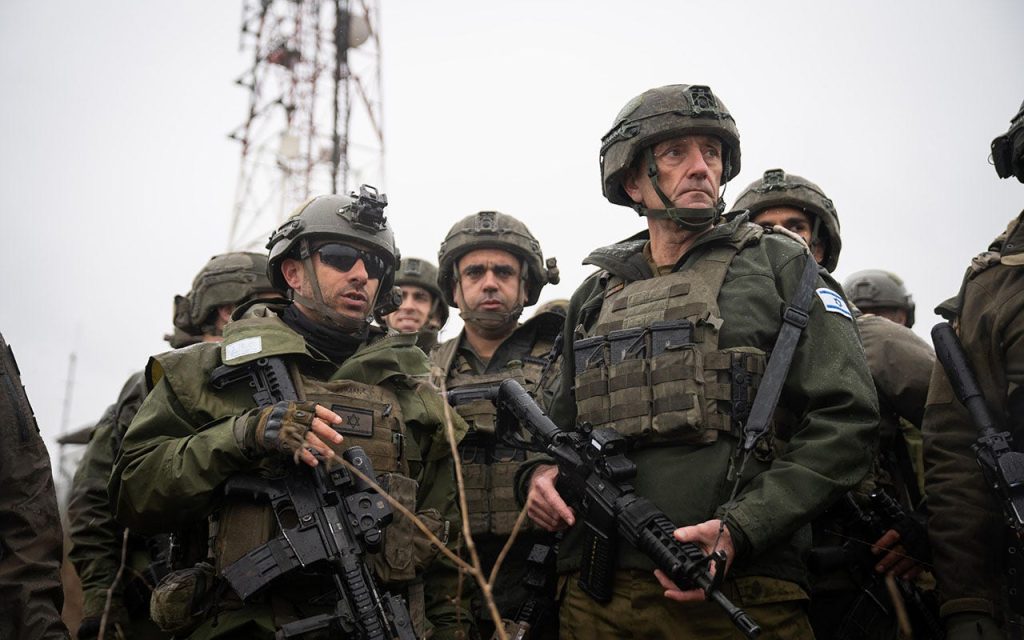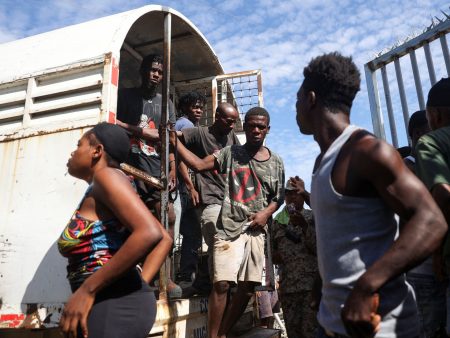The recent cessation of hostilities between Israel and Hezbollah, marked by a cease-fire agreement that has held for over a month, has ushered in a period of cautious optimism and strategic recalibration for both sides. While the immediate focus remains on maintaining the fragile peace, Israeli officials are emphasizing the importance of long-term stability and prosperity in the northern region as the ultimate victory over Hezbollah. This perspective, articulated by IDF Chief of the General Staff, LTG Herzi Halevi, underscores a shift in focus from purely military dominance to establishing a resilient civilian presence as a bulwark against future conflict.
Lt. Gen. Halevi’s assertion that Israel has already achieved a decisive military victory over Hezbollah reflects the significant damage inflicted upon the group’s infrastructure and capabilities during the recent conflict. The IDF’s sustained operations, including the dismantling of terror tunnels and targeting of Hezbollah command centers, have undoubtedly weakened the organization’s operational capacity. However, Halevi’s emphasis on the revitalization of northern Israeli communities suggests a recognition that military victories alone are insufficient to secure lasting peace. The return of normalcy to civilian life, characterized by bustling businesses, thriving tourism, and a vibrant agricultural sector, is presented as the ultimate measure of success, signifying a defeat of Hezbollah’s objectives to disrupt and destabilize the region.
This strategic vision hinges on the belief that a strong and prosperous civilian presence in northern Israel acts as a deterrent against future aggression. A thriving population demonstrates resilience and resolve, signaling to Hezbollah that its attempts to sow fear and disrupt Israeli life have failed. Moreover, the economic rejuvenation of the region strengthens Israel’s overall national security by bolstering its social fabric and demonstrating its capacity to recover from attacks. This approach recognizes that true security extends beyond military might and encompasses the well-being and prosperity of its citizens, particularly those living in border regions.
The implementation of this strategy necessitates a concerted effort by the Israeli government to invest in the rehabilitation and development of northern communities. Lt. Gen. Halevi’s call for the state to “strongly reinforce this responsibility” highlights the need for significant investment in infrastructure, economic development initiatives, and security measures to ensure the safety and prosperity of residents returning to the area. This includes providing adequate support for businesses, encouraging tourism, and ensuring the continued development of agricultural activities. The government’s commitment to this long-term vision will be crucial in demonstrating to its citizens that the state is invested in their well-being and committed to rebuilding their lives.
While the cease-fire has brought a semblance of calm, underlying tensions persist. Reports of continued Israeli strikes in southern Lebanon and the eastern Bekaa region, alongside accusations of Hezbollah smuggling weapons across the Lebanese-Syrian border, indicate that the situation remains volatile. These actions underscore the fragility of the cease-fire and the ongoing threat posed by Hezbollah. Israel’s continued military operations suggest a proactive approach to disrupting Hezbollah’s capabilities and preventing the group from regrouping and re-arming. Simultaneously, allegations of Hezbollah’s weapons smuggling activities highlight the group’s persistent efforts to maintain its military strength and its potential to reignite conflict.
The ongoing efforts to rebuild and revitalize northern Israel occur against this backdrop of simmering tensions. The thousands of Israelis who evacuated their homes during the conflict face the daunting task of returning to communities still bearing the scars of war. The government’s commitment to supporting their return and creating a secure and prosperous environment will be vital in restoring confidence and ensuring the long-term success of this strategy. The challenge for Israel lies in balancing the need for robust security measures with the goal of fostering a sense of normalcy and encouraging economic growth. Ultimately, the true victory over Hezbollah will be measured not only by military successes but also by the ability of northern Israeli communities to thrive and prosper in the face of ongoing challenges.










